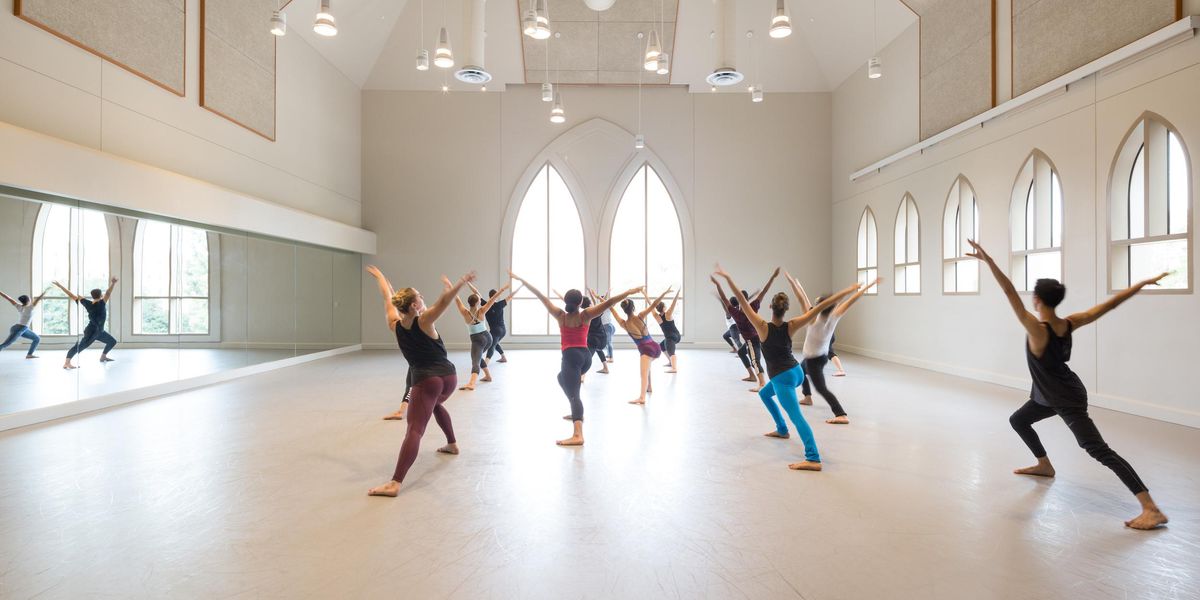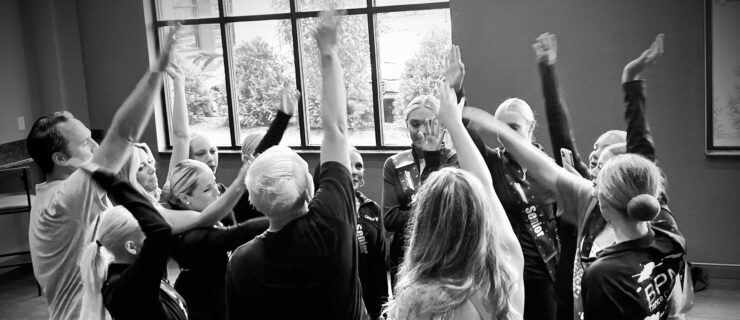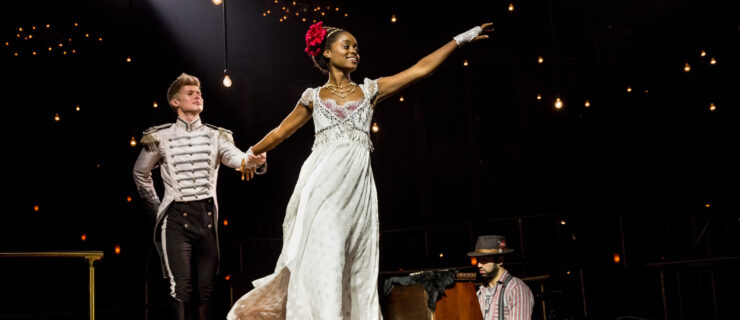The Problem With Self-Deprecation
Dancers often dis their
bodies—but the habit
may be more harmful
than you think.
During a
Nutcracker warm-up class a few years ago, I fell into a typical conversation with a co-worker at Charlotte Ballet:
“Oh my gosh, how can I be working this hard as Sugar Plum Fairy and
still be this fat?” I said.
“Yeah, I feel like a potato standing on two toothpicks,” she replied.
As our mindless banter continued, I noticed a student in the wings listening in. What kind of lesson were we teaching her with our casual self-loathing? When I was a student, I was constantly pulled in to the principal’s office to discuss the “problems” with my atypical dancer’s body. I left that school full of resentment.
So why, after a decade of dancing professionally, was I continuing to have these same lectures with myself?
Negative self-talk has become all too common in dance. It would be difficult to take two steps into any dressing room without hearing a dancer speaking disparagingly about her body. And these comments can hurt us more than we realize. In the studio, they shift our focus away from the choreography and to
“Why is my turnout so terrible? Is everybody
looking at my thighs right now?” We become the dancer who misses out on notes because she’s glaring at her hips in the mirror, the one her director doesn’t think of for a role because she doesn’t seem as “tuned-in” at work. What was once our passion starts to turn into an exhausting job that we feel under-qualified for.
Why We Do It
The inclination to criticize ourselves frequently
begins around adolescence. As my Charlotte Ballet colleague Jamie Dee Clifton puts it, “As we decide we want to be professionals, we start taking stock of our bodies and how they compare to others in the professional world.” Since our bodies are our instruments, any perceived flaws become threats to our success, and we can begin to obsess over them.
“When you’re speaking negatively of yourself to a friend, it feels like you’re bonding,” adds Ashlan Zay, a 16-year-old student at Charlotte Ballet Academy. Unfortunately, the habit doesn’t end after we graduate. When I first got a job, I had this strange sense that if I didn’t talk about my flaws, I was somehow implying that I felt superior. So I became the kind of dancer who, in so many ways, says, “Don’t worry, I know I’m not any good, you don’t have to tell me,” as if this would deflect judgment.
Break the Habit
So what’s the solution? Mindfulness: The practice of being fully present in each moment while calmly accepting the thoughts and feelings you have about it. Performance psychologist Dr. Charlie Brown explains, “The thought itself is not bad; it’s our relationship to that thought.” He encourages dancers to “accept the fact that we have negative thoughts and decide on actions that are consistent with the values we strive to have.” Dancers need to be able to take constructive criticism. But we also need to distinguish between a workable and unworkable thought. For example, if I see that my foot is sickled in arabesque, I will lift my pinky toe. However, if I see that my bum is looking bigger than I want it to, I let that thought float away and immerse myself back into the choreography. “Your thoughts are not who you are,” Brown adds. “They are simply mental events.”
Brown suggests that we plan a strategy. If you know you’re likely to obsess over your body, decide on what you will do when you’re faced with that first negative thought in the morning: Maybe you’ll focus on musicality or dive into the nuance of the steps. When you notice a friend dealing with a bout of self-loathing, encourage him or her back into a productive headspace by changing the subject. Or replace their negative comment with an honest compliment about their dancing. Dr. Brown even suggests kindly asking, “How’s that thought working out for you?”
I’ve vowed to never let a young student or co-worker hear me speak disparagingly about myself again. I also try to limit my compliments to my peers’ dancing ability, instead of their bodies. This is a work-in-progress, of course. But it’s our responsibility to take the focus away from waist size. Zay told me she likes to apply a suggestion from her teacher Jeanene Russell Perry: “Tell yourself one good thing about your dancing, and if you’re ever having negative feelings in class, go back to that positive thought.” If mantras like this aren’t enough to help you out of the negative funk, consider speaking to a professional in sports psychology like I did.
It makes all the difference when we can enjoy what our bodies can accomplish. You’re in this body for your entire career, so make the journey as sweet as possible.




